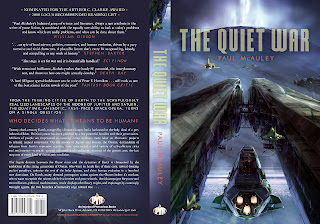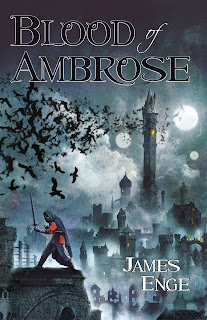Dirty Hands and Invisible Words
I’m interviewed, along with 13 other editors, in a two-part article called “Dirty Hands and Invisible Words: Speculative Fiction Editors Speak Out” in Clarkesworld Magazine, Issue 34, July 2009.
Here is a taste:
What is entailed in editing a book? Or, put differently, what exactly do you do as the editor?
Anders: This is a big question, particularly in my case as I am the “editorial director” of the Pyr line, a role that encompasses more than just acquisitions. In this regard, I read all manuscripts that come in, select the very small percentage of these that I am interested in acquiring, present them to my parent company for approval, negotiate with the agents or authors for the sale, work with the author on any structural changes or clarifications/improvements that need to be made to the manuscript, select and hire the cover artist, art direct the cover, oversee/approve the internal layout of the book that is laid out by typesetting, write the back cover copy (in conjunction with the author and an in-house editor), art direct our in-house design staff for the typography and layout of the book’s jacket, advised marketing on how best to advertize it, work with publicity on same, assist in all the various outward focused efforts that require book descriptions, help compile comparative buys for online retailers, and serve as an advocate both inside and outside of the house for the book. Inside the house, because my parent company publishes 100 titles a year on average (out of which Pyr is about 30), I am the book’s advocate to remind all the various departments what the book is about, why it is important, and how to market and package it. Outside, I maintain our newsletter, blog, Twitter and Facebook pages/accounts, and travel about once every other month to speak at conventions and libraries on our book line. I also get asked for interviews about once a week now (which I happily/gratefully agree to, thank you), and I scheme constantly about how to get books into readers hands. So, basically, I eat breath and sleep science fiction and fantasy, and it’s not uncommon for me to wake up at 3 am with something in my head like “OMG, we need to put a map in the front of Joel Shepherd’s latest fantasy novel. I better get on that ASAP” or “Have I checked in with Stephan Martiniere to make sure the cover for The Dervish House is on track?” or “Did we switch that author photo of Mike Resnick on the jacket flap out with the new one he prefers?” With all of that going on, actually sitting down with a red pen and a manuscript seems like a very tiny portion of the job description.
The whole interview was very enlightening (for me too!). The other twelve editors are:
Philip Athans has been a full-time staff editor at TSR, Inc. and Wizards of the Coast since 1995.
Victoria Blake is the publisher and founder of Underland Press, an independent specialty press.
Paula Guran is the editor of Juno Books, an imprint of Simon & Schuster’s Pocket Books.
Gabrielle Harbowy is a freelance editor, and editor-in-charge at Dragon Moon Press.
James Lowder has worked as an editor for both large publishers and tiny independents, on projects that include New York Times bestselling shared world novels and small, critically acclaimed creator-owned titles.
John Jarrold has run three science fiction and fantasy imprints in the United Kingdom, worked as a freelance editor, and now runs the John Jarrold Literary Agency.
Susan J. Morris the Forgotten Realms® line editor at Wizards of the Coast.
Darren Nash is the editorial director at Orbit UK.
Patrick Nielsen Hayden edits books for Tor Books, among other publishers.
Chris Schluep is a Senior Editor at Ballantine/Villard/Del Rey.
Simon Spanton is the editorial director at Orion/Gollancz Books in the United Kingdom.
Deb Taber is the senior book editor of the Apex Book Company, an independent specialty press.
Jacob Weisman is the founding editor and publisher of Tachyon Publications, an independent specialty press.
Dirty Hands and Invisible Words Read More »









